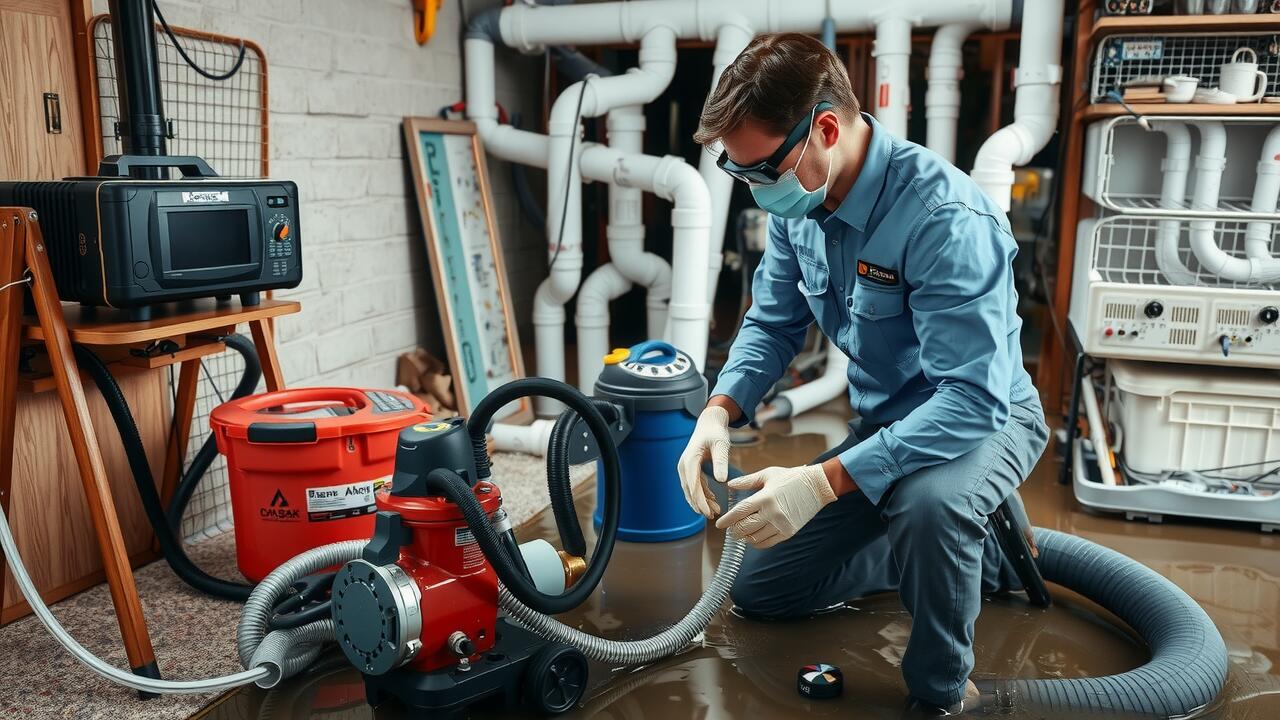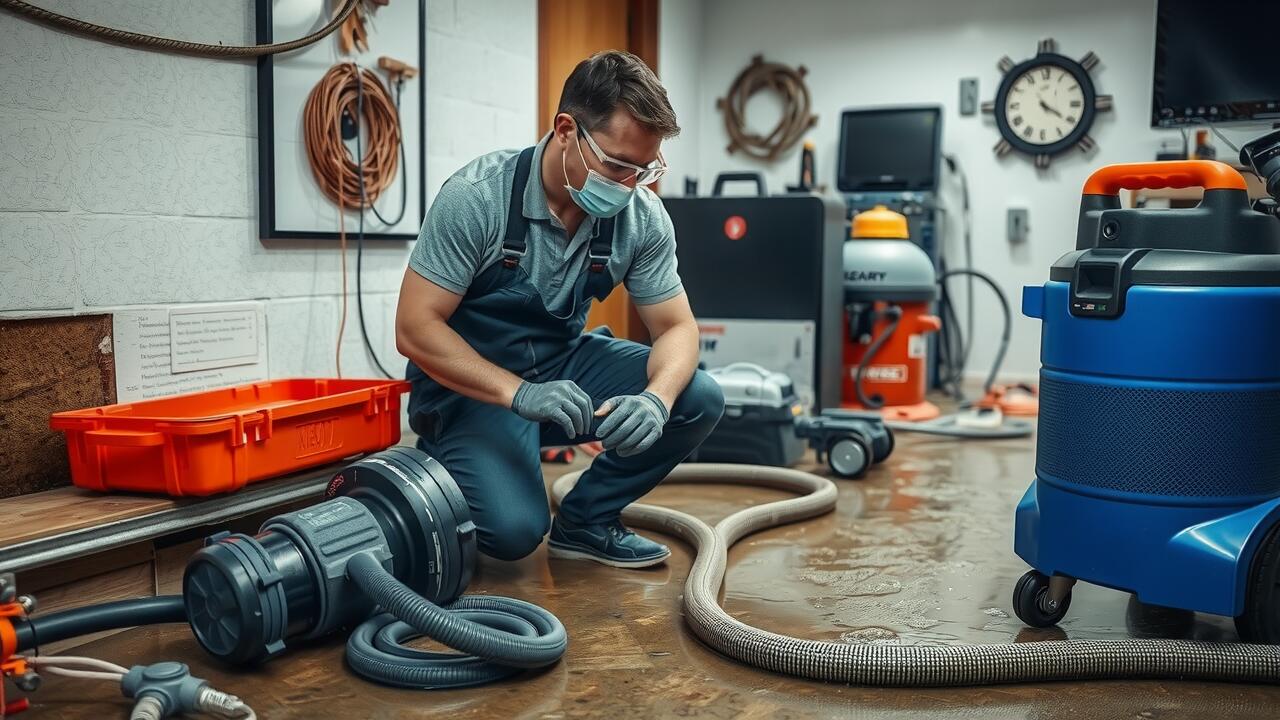
Signs of a Potential Sewage Backup
Several warning signs can indicate a potential sewage backup in your home. One of the most common indicators is the presence of gurgling sounds from drains. These noises often point to blockages in the plumbing system. Slow drainage in sinks, bathtubs, or toilets can also signal an impending issue. Homeowners should pay attention to unusual odors as well, particularly those resembling sewage. Ignoring these signs can lead to more significant problems down the line.
If multiple fixtures begin to back up simultaneously, the situation may be more severe. It is essential to act quickly when these signs appear. Professional assistance is recommended to handle potential sewage issues before they escalate. Engaging in services such as Sewage Backup Restoration in Columbus, Ohio, can help mitigate damage and restore proper function to your plumbing system. Recognizing early indicators can save time, money, and stress in the long run.
Warning Indicators to Watch For
Homeowners should be mindful of several signs that indicate a potential sewage backup. Unpleasant odors emanating from drains or toilets can signal issues in the plumbing system. Slow drains in multiple fixtures may also suggest clogs forming in the sewer line. Gurgling sounds from toilets or drains are another warning indicator that means air trapped in the pipes is having difficulty escaping.
Another significant sign to watch for is water pooling in the basement or yard, particularly after a heavy rain. If multiple plumbing fixtures back up simultaneously, this could indicate a serious issue within the main sewer line. In Columbus, Ohio, homeowners facing these situations may require assistance with sewage backup restoration. Taking timely action can mitigate damage and prevent more extensive repairs down the road.
Steps to Prevent Sewage Backup
Preventive measures are crucial in avoiding sewage backups and ensuring a well-functioning plumbing system. Homeowners should schedule regular inspections of their sewer lines to identify potential blockages early. Keeping trees and shrubs away from underground pipes can prevent roots from intruding, which is a common cause of obstruction. Additionally, only flush appropriate materials down the toilet to avoid clogs that could lead to backed-up sewage.
Regular maintenance practices can significantly reduce the risk of sewage backups. Routine cleaning of drains and periodic professional assessments of sewer systems can help maintain flow efficiency. Homeowners in Columbus, Ohio, can take advantage of specialized services like Sewage Backup Restoration in Columbus, Ohio, to address problems quickly. Investing in backwater valves can also provide an added layer of protection, preventing sewage backup during heavy rainfall or system overloads.
Regular Maintenance Tips
Regular maintenance is essential to prevent sewage backups in your home or business. One of the most effective ways to ensure your plumbing system remains in good shape is through regular inspections and cleanings. It’s advisable to schedule these inspections at least once a year. Clearing out any buildup in pipes can significantly reduce the risk of blockages. Additionally, be attentive to the condition of your drains. Regularly check for signs of slow drainage, which can indicate potential issues.
Another important aspect of maintenance involves being mindful of what goes down your drains. Avoid flushing non-biodegradable items or pouring fats, oils, and grease into the sink. Educating all members of the household or staff about proper disposal methods can further prevent costly issues. In Columbus, Ohio, it’s crucial to address any plumbing concerns promptly. Engaging with professionals who specialize in sewage backup restoration in Columbus, Ohio, will help ensure that your property remains safeguarded against backups and their associated damages.
Legal Implications of Sewage Backup
A sewage backup can lead to significant legal implications for property owners and municipalities alike. When a backup occurs, it often results in damage to property and health risks due to exposure to contaminated materials. As property owners assess their situation, they must also consider their legal responsibilities. Many insurance policies cover specific damages related to sewage issues. Understanding these coverage details is crucial to mitigate financial loss.
In Columbus, Ohio, the law surrounding sewage backups emphasizes accountability. If a backup arises from municipal sewer system failures, residents may have grounds for a claim against the city. Conversely, if the cause stems from a lack of maintenance on private property, the property owner may bear liability for damages. Engaging professional services such as Sewage Backup Restoration in Columbus, Ohio, can help lessen risks and ensure that necessary precautions and repairs are properly addressed, reinforcing the importance of adherence to legal standards in such incidents.
Liability and Damage Claims
When a sewage backup occurs, it can lead to significant property damage and health hazards. Property owners may find themselves navigating a complex web of liability based on the cause of the backup. If the backup results from the negligence of a municipal water authority or sewer system, homeowners might be entitled to pursue damage claims against the responsible party. Understanding local laws and regulations is crucial, as they dictate the responsibilities of both property owners and the governing bodies responsible for sewage systems.
In Columbus, Ohio, the process for making a claim may involve documenting the damage thoroughly and obtaining estimates for restoration. Sewage Backup Restoration in Columbus, Ohio, often requires professional intervention to mitigate health risks and restore properties effectively. Homeowners should gather evidence of the incident, including photographs and relevant communications with local authorities. This documentation can prove valuable in supporting their claims and ensuring they receive fair compensation for damages incurred.
FAQS
What are the common signs of a sewage backup?
Common signs of a sewage backup include gurgling sounds in drains, slow drainage, foul odors, and water pooling around fixtures or in the yard.
How can I prevent sewage backups in my home?
To prevent sewage backups, you should routinely inspect and clean your plumbing system, avoid flushing non-biodegradable items, and have your sewer line inspected regularly by a professional.
Who is typically responsible for a sewage backup?
Responsibility for a sewage backup can vary based on the cause. Homeowners are generally responsible for issues within their property, while municipal authorities may be liable for problems in public sewer systems.
What legal implications could arise from a sewage backup?
Legal implications of a sewage backup may include liability claims for property damage, potential lawsuits against property owners or municipal services, and issues related to insurance coverage.
How can I file a damage claim for a sewage backup?
To file a damage claim for a sewage backup, document the damage with photos, gather any relevant reports from professionals, and contact your insurance company to understand your coverage options and initiate the claims process.
